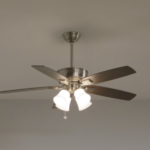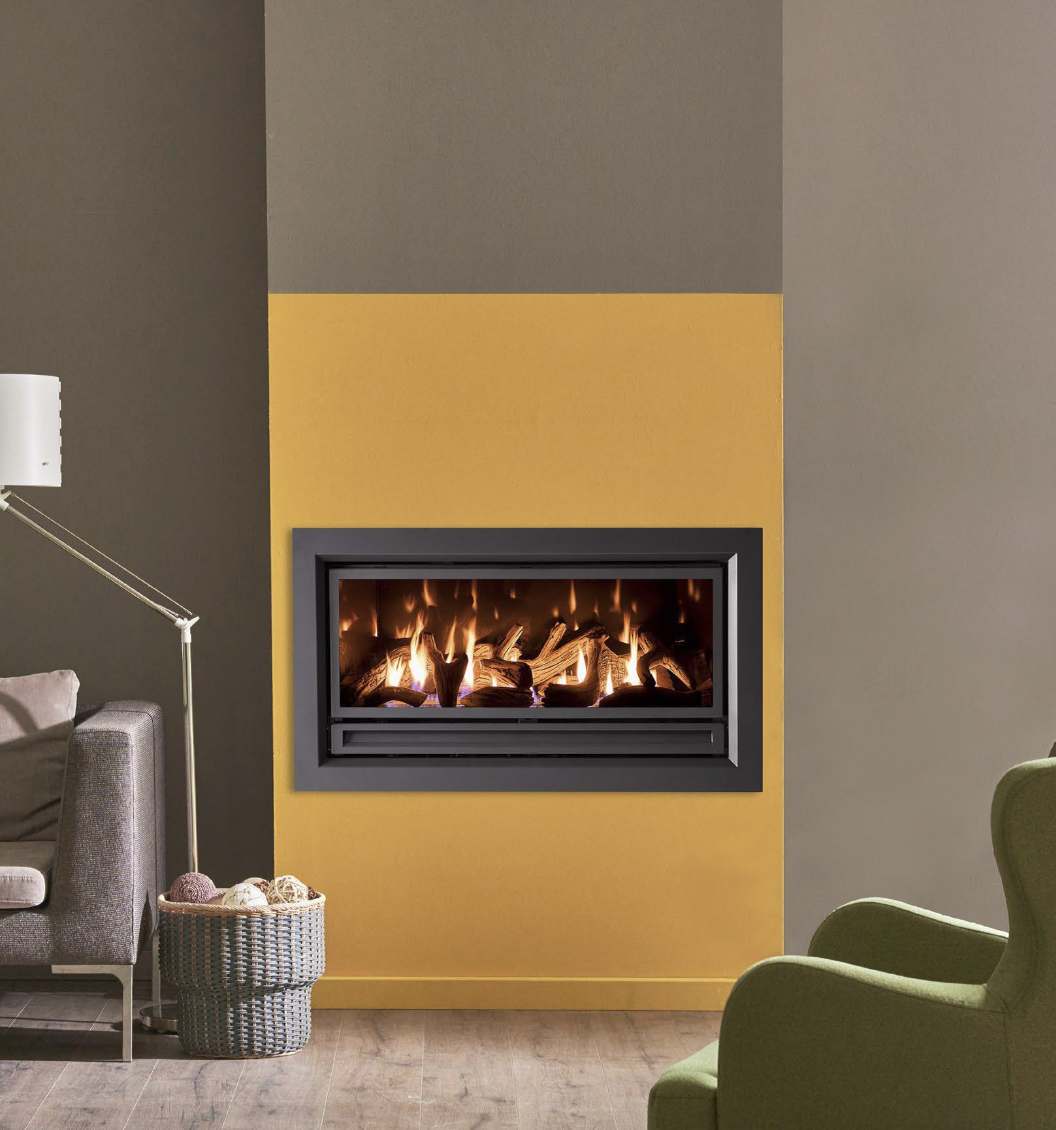
Gas Heater Safety in Victoria
Gas heater safety is incredibly important and several precautions should be taken to ensure their safe operation. So what are the safety regulations?
It’s essential to have a licensed gas fitter (a plumber who has a licence from the Victorian Building Committee to work on and install gas heaters) install and regularly service the heater.
Regular maintenance will help to identify and address any potential issues before they become a concern.
Proper ventilation will prevent the build-up of carbon monoxide, so be mindful of using these heaters in closed spaces, and consider keeping doors/ windows ajar.
Additionally, installing a carbon monoxide alarm close by provides an extra layer of safety by detecting any potential leaks.
It’s also important to keep flammable items away from the heater and ensure it’s placed on a flat, stable surface. Educating household members about gas heater safety, including recognizing the signs of leaks and knowing how to shut off the gas supply is vital.
Types of Gas Heaters
In Australia, there are various types of gas heaters available to cater to different heating needs and preferences.
PORTABLE GAS HEATER
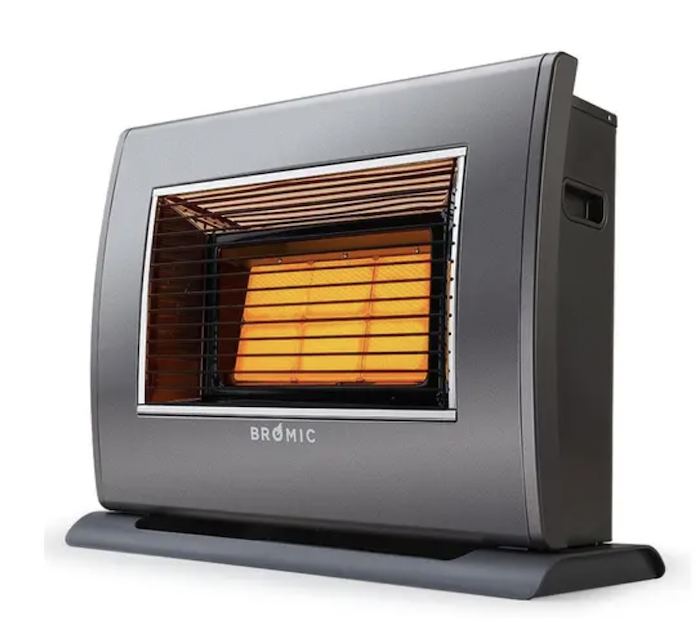
One commonly found type is the portable gas heater, which provides flexibility in terms of placement and can be moved from room to room. These heaters usually use either natural gas or LPG cylinders as fuel.
WALL MOUNTED GAS HEATER
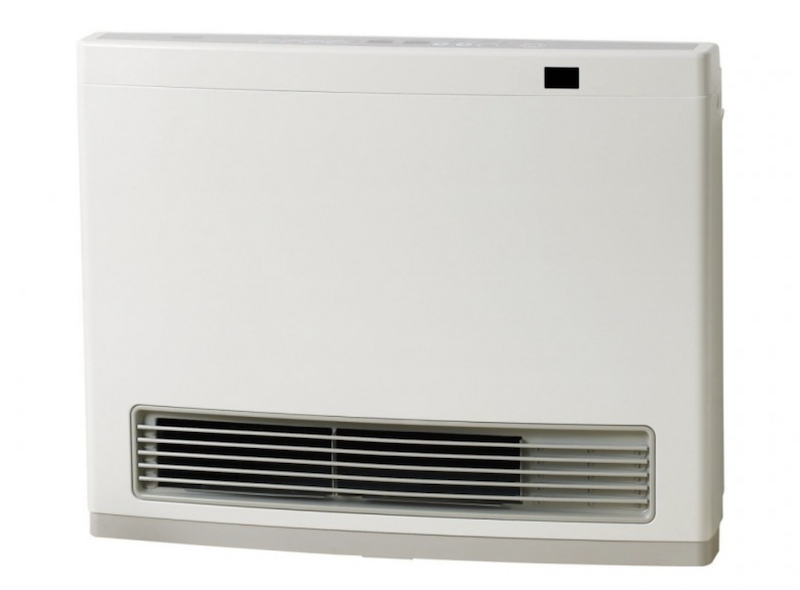
Another popular option is the wall-mounted gas heater, which is fixed to a wall. These heaters are efficient and great space savers, ideal for smaller living areas.
DUCTED GAS HEATERS
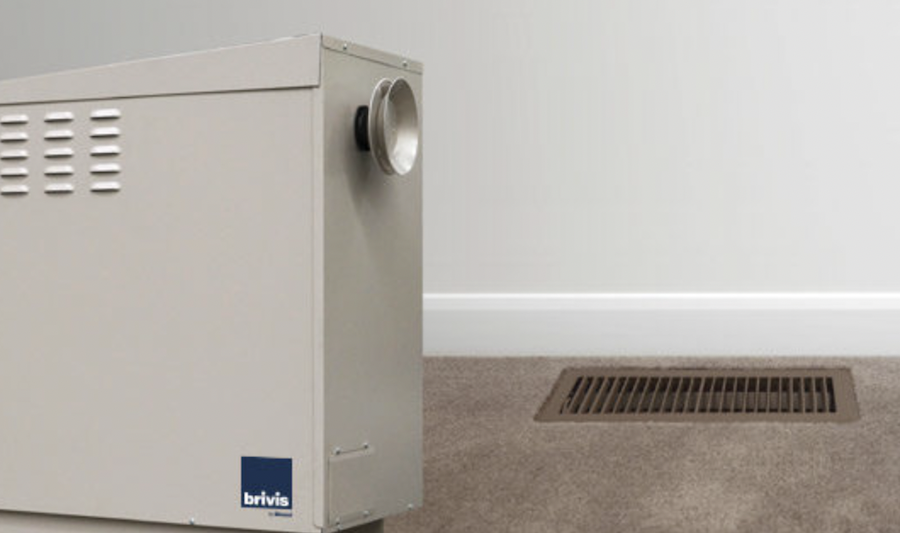
Ducted gas heaters are another common choice, especially for larger homes. They utilize a network of ducts to distribute warm air throughout multiple rooms simultaneously. These are often controlled by a central thermostat, allowing for zoned heating.
GAS LOG FIRES
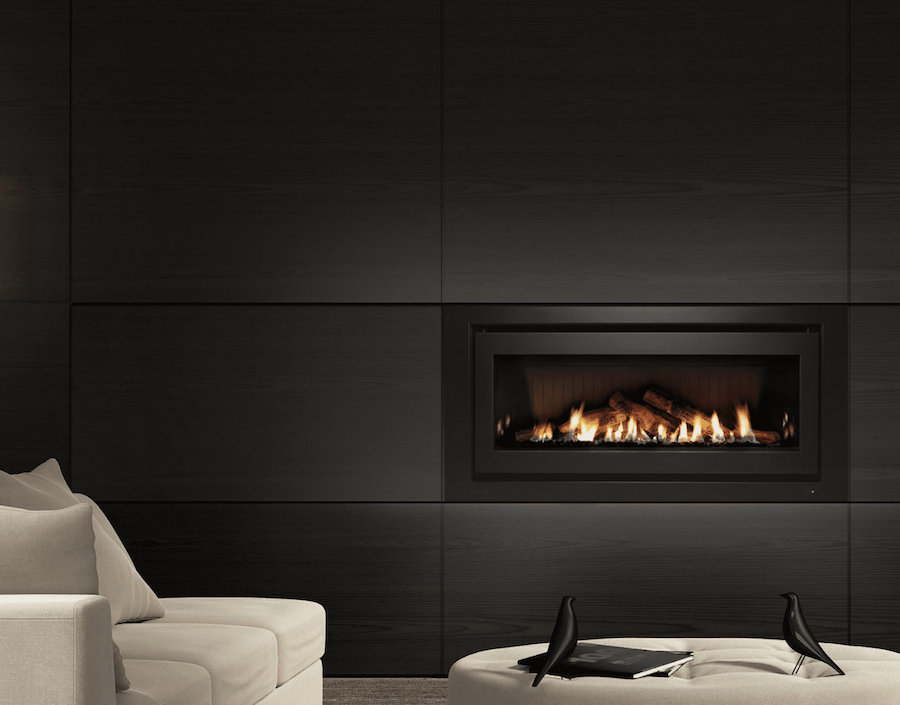
Gas log fires provide the aesthetic appeal of a traditional fireplace with a realistic-looking flame effect while having the convenience and efficiency of gas heating.
Before making a choice, it’s important to consider factors such as heating capacity, energy efficiency ratings, and safety features when selecting which gas heater is best for you.
Dangers of an Unserviced Gas Heater
Neglecting regular servicing of a gas heater can create significant dangers.
An unserviced gas heater may develop issues such as gas leaks, blocked flues, or faulty components that can lead to major hazards.
Over time, dust, debris, and other contaminants can build up, obstructing the proper functioning of the heater and potentially causing inefficient combustion.
This can result in the release of carbon monoxide, a colourless and odourless gas that is extremely toxic.
Carbon monoxide poisoning can lead to severe health complications and in extreme cases, even death.
Regular servicing by a licensed professional is important as it ensures that the gas heater is functioning safely and efficiently.
A gas heater service involves:
A gas heater service typically involves a thorough inspection and maintenance of the gas heater to ensure its safe operation.
During a service, a licensed gas fitter will inspect the components, including the burner assembly, heat exchanger, flue, and ventilation systems, checking for any signs of wear, damage, or blockages.
The gas pressure and supply will be tested to ensure proper functioning, the technician will clean the heater, remove dust, debris, and any buildup that may affect its performance, check for proper ventilation of the area and that the heater is safely secured.
They may also conduct a carbon monoxide test to ensure there are no leaks or excessive emissions, If needed, the service may involve checking and calibrating the thermostat, testing safety features, and providing recommendations for any necessary repairs or improvements.
Carbon Monoxide Leak Symptoms to be Aware of:
A carbon monoxide (CO) leak is a serious concern as it is a colourless, odourless, and tasteless gas that can be extremely harmful. Here are some symptoms to be aware of in case of a carbon monoxide leak
Headaches: One of the most common symptoms of carbon monoxide poisoning is a persistent headache. This headache may feel different from a regular headache and can become more severe as exposure increases.
Dizziness: Carbon monoxide can cause dizziness, feeling faint, or a sensation of being lightheaded. This symptom is often described as feeling unsteady or as if the room is spinning
Nausea and vomiting: Exposure to carbon monoxide can lead to nausea, stomach discomfort, and vomiting. These symptoms may be mistaken for food poisoning or other gastrointestinal issues.
Fatigue and weakness: Carbon monoxide exposure leads to oxygen deprivation in the body. This can cause feelings of extreme fatigue and weakness
Shortness of breath: This occurs because carbon monoxide replaces oxygen in the bloodstream, leading to oxygen deprivation
Confusion and impaired judgment: Carbon monoxide poisoning can affect cognitive function, leading to confusion, difficulty concentrating, memory problems, and impaired judgment. This can make it challenging to recognize the source of the problem.
Chest pain or Cherry-red lips or skin: In severe cases, carbon monoxide poisoning can cause chest pain, or a cherry-red appearance to their lips, skin, or nail beds. This is a rare symptom and usually indicates a high level of exposure.
Rental laws in Victoria around Gas Heaters
Rental laws in Victoria have specific regulations regarding gas heaters to ensure the safety and well-being of tenants.
Landlords are responsible for providing and maintaining gas heaters in rental properties.
They must ensure that the gas heater is safe and in good working condition when the tenant moves in. This includes regular servicing every 2 years and compliance with safety standards.
Landlords are also required to provide tenants with detailed records of the completed safety checks.
If a gas heater requires repairs or replacement during the tenancy, landlords are responsible for promptly addressing the issue.
Tenants should report any faults or concerns regarding gas heaters to their landlord or property manager as soon as possible.
OLD GAS HEATER CAVITIES
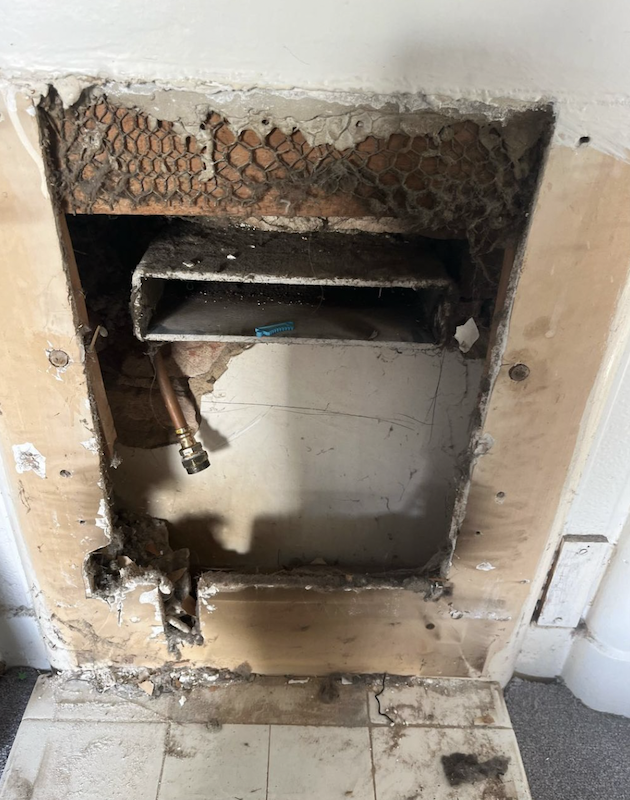
Do you have an old gas heater space? Well, you need a plumber to look into making it safe. The gas source will need to be capped to avoid any leaks.
How Do Gas Heaters Work?
Gas heaters work by burning natural gas or propane to produce heat. When the thermostat detects a need for heating, it opens a valve to allow gas into the burner assembly.
An igniter or pilot light then ignites the gas, starting the combustion process. As the fuel burns, it generates heat. A heat exchanger absorbs this heat and transfers it to the surrounding air.
A blower or fan then circulates the warmed air throughout the room or building, providing heat. Gas heaters incorporate safety features like flame sensors and pressure switches to ensure safe operation.
How Do You Know If Your Heater Is Leaking Gas?
Knowing whether or not your gas heater is leaking is vital for the safety of your household.
Signs to look out for:
- Hissing or whistling sounds near the heater
- A yellow or flickering flame
- Higher gas bill than normal
- Excessive condensation in or around the unit
- Dead or dying house plants with no explanation
What to do if your gas heater is leaking?
If you detect a gas leak, immediately turn off the gas supply, ventilate the area by opening windows and doors, evacuate everyone, and contact emergency services or your gas provider.
Ensure your heater is assessed and serviced by a professional before using it again.
How often should you get your gas heater serviced?
In Australia, it’s generally recommended to have your gas heater serviced every 12-24 months (1-2 years).
Regular servicing helps to prevent any safety issues in the future.
How can you choose a reputable and qualified gas technician?
When choosing a plumber to service your gas heater, it’s important to look for their qualifications and licenses, but also their experience.
Their experience level indicates how familiar they are with various models and any potential issues that may arise. It’s recommended to seek referrals, read reviews, and compare service costs to make an informed decision.





